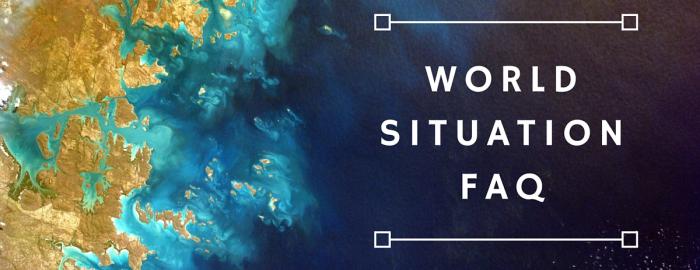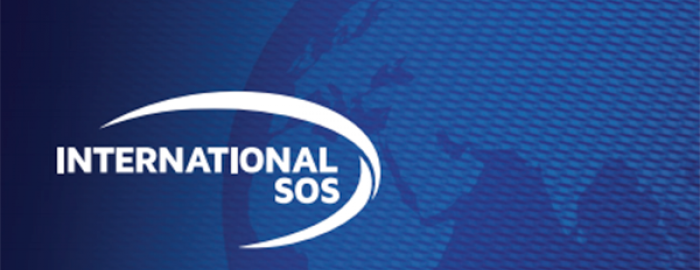What general safety measures should I take while abroad?
To stay informed of the latest advisories and alerts, U.S. citizens should register their trip abroad with the U.S. Department of State via its Smart Travelers Enrollment Program (STEP), sign up for alerts from International SOS, monitor local and international news, and stay in frequent contact with their host program directors and administrators. Non-U.S. citizens should explore whether their home country has something similar to STEP to enroll in. Generally, we recommend that students:
- Avoid large crowds (including protests and rallies)
- Avoid moving around in large conspicuous groups of Americans
- Minimize time in areas where Americans tend to congregate
- Practice good hygiene to prevent the spread of illness
- Share their travel itineraries with their program administrators and homestay families (when applicable)
- Review Duke’s Restricted Regions List for travel restrictions
What has Duke University done to address safety and security concerns on study away programs?
When an event occurs that threatens the safety or security of students on our programs, the university will hold appropriate meetings at various administrative levels to discuss the situation and to develop a plan of action along established protocols. As part of this process, GEO will solicit updates on students' welfare from the students and on-site program administrators, making sure that they have access to the various resources and forms of support that can be helpful in such situations. The program administrators of each of our Duke-administered programs have developed contingency plans for emergency situations that may occur in their program locations. For study abroad programs, Duke administrators also facilitate the registration of U.S. citizens with the local U.S. embassy or consulate.
Will Duke University cancel any programs?
The decision to suspend or cancel a program is not one that the university takes lightly. In addition to GEO’s own careful assessment of events, a decision to suspend or cancel a program would be informed by consultations with various parties, which may include:
- Duke program administrators
- Officials at the partner institution(s)
U.S. State Department officials - Officials from other U.S. agencies and/or NGOs
- Private-sector international security experts
- Other relevant Duke University offices
Events that may trigger a program suspension or cancellation may include the following:
- Military action by the U.S. or another country against the country in which a program is located, or an adjacent neighboring country;
- Public health crisis in the program country or region;
- Significant terrorist activity in a program’s city or country;
- Protracted or indefinite closure of the host institution(s);
- Disruption of public utilities and/or services;
- Widespread civil unrest, violence, and/or rioting;
- A declaration of martial law in a program’s city and/or country;
- Recommendation of suspension/cancellation by program staff in-country;
- Travel advisory, warning, and/or other directives by the U.S. Department of State or other government institutions
Please note that this is not an exhaustive list.
What happens if the university cancels a study away program?
In the event that Duke should have to suspend or cancel a specific Duke-administered study away program, thereby causing no academic credit to be awarded, full-tuition refunds will be made. In the case of additional program fees, Duke will only be able to refund uncommitted and recoverable funds. If Duke terminates a program early but makes arrangements for students to earn full or partial credit, the tuition refund amount would reflect these circumstances. Whether or not credit is awarded would depend on the particular program and when the suspension or cancellation takes place, among other factors. Students studying away on Duke-approved programs, sponsored by another institution, are subject to the cancellation and refund policies, if any, of the respective institution.
Can I come home mid-semester or mid-session if current events make me nervous? What are the academic and financial consequences of withdrawal?
In consultation with their families, students studying on Duke programs always have certain options available to them should they feel the need to leave a program. GEO directors are happy to discuss these options with students and families but please also see the withdrawal information on the following pages:
https://globaled.duke.edu/about/forms-policies
https://globaled.duke.edu/finances/withdrawal-cancellation
Are the policies the same if I am studying with a non-Duke program?
Duke students studying on non-Duke programs are subject to the withdrawal, cancellation, and refund policies of their programs or host institutions. The logistics and timing of a student’s return to the Duke campus would be dependent on the applicable Duke academic regulations and conversations with Trinity College of Arts & Sciences or Pratt School of Engineering deans and other university administrators.
Where can I get more information about world events that may directly affect study away through Duke?
Besides major media outlets, GEO recommends that families and study away participants acquaint themselves with the following resources:
- The U.S. Department of State website for travel warnings and alerts: https://travel.state.gov/content/travel/en/traveladvisories/traveladvisories.html
- The U.S. Department of State website for country-specific information: http://travel.state.gov/content/passports/en/country.html
- Duke University’s International Travel Policy: https://travel.duke.edu/travel-policy
- Duke University’s Restricted Regions List: https://travel.duke.edu/restricted-regions-list
- International SOS country-specific risk information: https://www.internationalsos.com/MasterPortal/default.aspx?membnum=11BSGC000072







